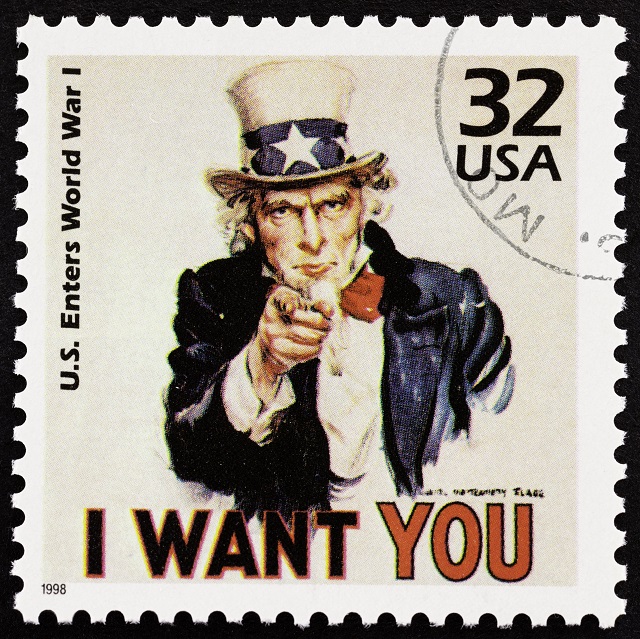
Credit: Getty Images
In 21st century America, citizens assert their individual rights loud and clear. Media coverage shows that Americans defend, debate, and demand individual liberties, including freedom of speech and the right to bear arms. Yet just over 100 years ago, Americans valued the greater good of the country more than their personal freedoms, according to Christopher Capozzola, the author of “Uncle Sam Wants You: World War I and the Making of the Modern American Citizen.” Capozzola explains that the change from prioritizing one’s country to one’s self occurred during World War I. As the federal government gained more power during the First World War, its growing control was countered by a demand to protect individual rights, Capozzola says. The changing relationship between citizen and country would powerfully shape the society we now live in.
Three Takeaways:
- American society was a “culture of obligation” before World War I. Capozzola explains that this means that Americans gave up some of their personal rights in order to prioritize loyalty and obedience.
- Neighbors and community members would hold each other accountable to behave like loyal citizens during WWI. Pressure to support the war effort sometimes turned into mob violence and discrimination against German-Americans and minority groups.
- During the First World War, a new type of American citizen began to emerge - one that championed individual rights. Conscientious objectors to the war and pacifists opposed some of Uncle Sam’s demands. They made claims to their individual rights, spurring groups like the ACLU and the NAACP to grow during this time.
More Reading:
- Learn about why WWI is often forgotten by American society, even though it was so consequential.
- This piece in National Geographic recounts the United States’ timeline and role in the Great War.
- An article in Smithsonian tells the story behind Uncle Sam and how his image became such a widespread meme.
- How were Germans and German-Americans treated during WWI? Not that well. More on that from NPR and The History Channel.
Listener Feedback:
Kip Karl from Baltimore heard our interview with Christopher Capozzola, while driving in his car and listening to his local station, WYPR, and it prompted him to share a personal story with us about his German-American family’s experiences during the First World War.
Karl told us that his great-grandfather emigrated to the United States in the late 1860s and that, during the war, his great-grandfather used to pay Karl’s father when he was about five-years-old “a nickel to go down and stand in front of their house” in Detroit and to yell, “to hell with the Kaiser, to hell with the Kaiser” for several minutes.
Karl explained that his father did this every so often, because the family, “wanted to make sure that with a last name like Karl,” and with his great-grandfather having emigrated from Germany and having a strong German accent, that the family was, “very clear to everybody in their neighborhood where they stood on the war.”
If you have comments or stories to share with us, drop us a line at innovationhub@wgbh.org, tweet us: @IHubRadio or give us a call at 617-684-5839.

